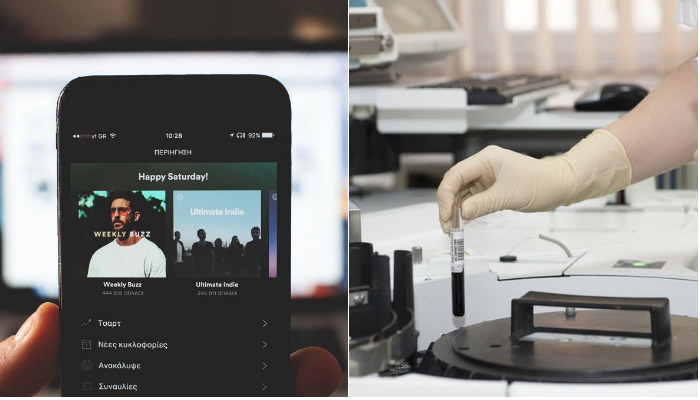
At the website Popula, Cam Scott reflects on the recent announcement that Spotify and Ancestry will team up to offer playlists based on a user’s DNA-derived family history. As Scott argues, this alliance represents a new plateau in efforts to reduce us to profitable data points. Here’s an excerpt:
What gives music special purchase on the genetic imagination? There may be no human behavior as general as the appreciation, and creation, of music. This practice, of the organization and sharing of sound, is intrinsically social, fusing cultural groups and groups within groups, in virtually every society on earth. While not every culture marks something called “music” apart from daily life as a separate sphere of activity, let alone as a discrete commodity, it appears to be something that “we” as people do.
This generality is less comforting against the backdrop of big data, and the fabric of monopolistic services that we use online everyday. In this landscape, all expressive activity is mined for private gain — or more nefarious purposes. It turns out that Ancestry.com’s pairing with Spotify is the less alarming of their partnerships announced this summer. In July 2018, Vice reported that the information gathered by the website was being used by the Canadian Border Services Agency to facilitate deportations. Spotify, too, collects immense amounts of demographic data from its 15 million subscribers, and the pairing of these data-extractive behemoths suggests a dystopic near-future of integrated consumer surveillance.
The Spotify and Ancestry partnership proposes to entertain users based on the narrowest possible conception of who they are. But the music we listen to and the art we consume already say much more about our cultural bearings than a genetic profile. This suggests corporate attempts at the inverse — to assign us places in the world based on our seemingly subjective choices and preferences. Of course, this process is already underway. But even a gimmicky partnership such as this shows how far this kind of program could extend. It’s surprising that this service is described as “DNA curation,” as though genetic code itself were responsible for the output. Big data, which construes people as only so many clusters of information, finds a natural basis in the ideology of genetic predetermination.
Image via Alternative Press.